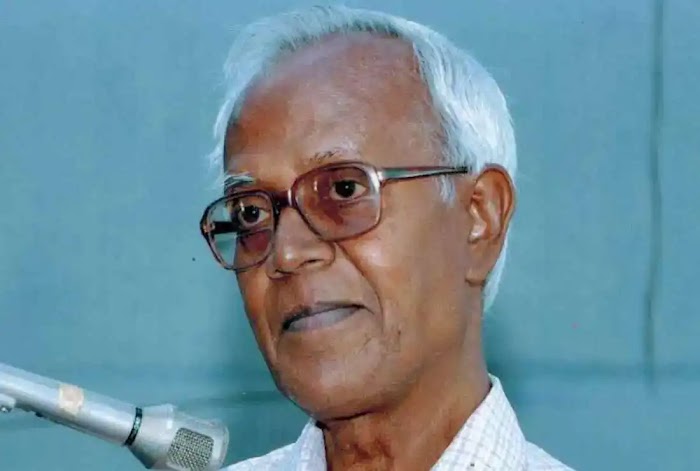84-year-old Father Stan Swamy was arrested on false charges and denied bail despite suffering from multiple ailments.
The birth anniversary of Father Stan Swamy was observed in India by exhorting the youth to follow the Indian Jesuit priest’s path of dedicating life to the poor indigenous people.
“Usually, after death, one is buried. But Father Swamy was sown. His ideals and sacrifices have to be taught to people,” said Justice K Chandru, a retired Madras High Court judge in Tamil Nadu, the home state of Father Swamy.
Born in the southern state, Father Swamy transcended all barriers and served the indigenous people in eastern Jharkhand state, the former judge observed.
“If any award is instituted by Tamil Nadu, it has to be given to him [Father Swamy] first,” Justice Chandru said.
The 84-year-old Father Swamy, based in eastern Jharkhand state, died as an undertrial in Mumbai, the capital of Maharashtra in western India, on July 5, 2021, after being arrested under alleged false charges and denied bail despite suffering from multiple age-related ailments.
Justice Chandru was addressing a gathering at the Jesuit-run Loyola College in Tamil Nadu’s capital Chennai, where a half-an-hour short play, "I am not a silent spectator" on the life of the late priest was staged on April 25.
Over 500 people, including students from the college, watched the play staged as part of a joint initiative of the Jesuits, the Archdiocese of Madurai, and other Catholic groups.
Nuns, deacons and lay people are part of the play which has so far been staged in 12 locations in Tamil Nadu as part of the initiative to spread the legacy of Father Swamy ahead of his 86th birth anniversary on April 26.
“Obviously, I had heard about the great work done by Father Swamy and about his detention in prison and later on, his death as a prisoner, but never got to know him so well until I became part of this troupe,” said Sister Benita Rayappan.
The Holy Cross nun told UCA News on April 26, “I am inspired to work more for the poor and downtrodden.”
“The real-life story of Father Swamy has definitely transformed to the extent that I should never be afraid of telling the truth,” the nun, a social worker, added.
Justice Hariparanthaman, a retired Madras High Court judge, who watched the play, said Father Swamy made the indigenous people aware of their rights.
“This angered the rulers and corporate houses,” he added.
The priest was arrested on Oct. 8, 2020, by India's anti-terror National Investigation Agency which accused him of being a party to a conspiracy hatched by outlawed Maoist rebels to unleash mob violence at Bhima-Koregaon in Maharashtra on Jan. 1, 2018.
Along with 16 others, Father Swamy was charged under the provisions of the draconian Unlawful Activities Prevention Act.
“Our purpose is to create awareness among the people about his ideals, dedication and sacrifices for the underprivileged indigenous people,” said Father Britto Vincent, a Jesuit priest based in Chennai who played a key role in producing the play.
“We know he died in prison for no fault. We want to tell the people about his innocence and appeal to the authorities to withdraw all the false cases registered against him even though he is not here to ask for it,” Father Vincent told UCA News on April 26.
Referring to the recent findings by Arsenal Consulting, a Massachusetts-based digital forensics firm, Father Vincent said it was clear that Father Swamy was trapped in a totally false case.
The US forensic firm in its report said, “Digital evidence used to arrest senior human rights defender Father Swamy in the Bhima-Koregaon case was planted on his computer’s hard drive.”
The Jesuits have already filed a case in the Mumbai High Court, seeking directions to clear his name from the alleged case of treason.
“We also want the release of other co-accused in the same case,” said Father A Santhanam, a Jesuit lawyer practicing in the Madurai bench of the Madras High Court.
Several programs were organized in different parts of India, including his residence in Ranchi, the capital of Jharkhand state, to commemorate Father Swamy’s birthday.



